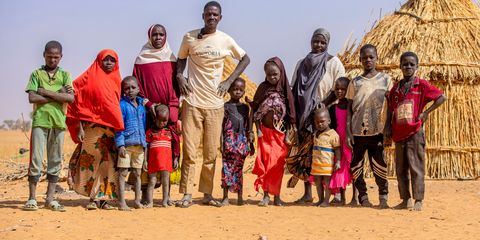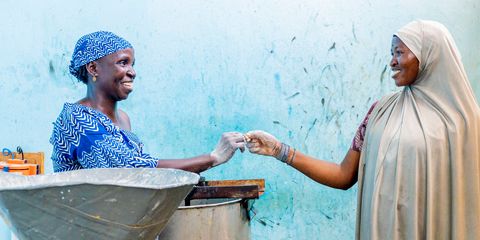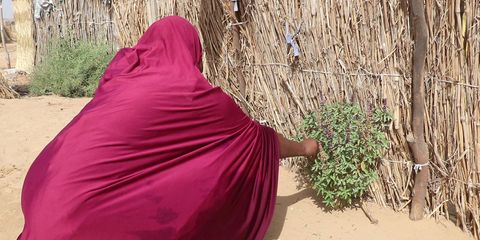Mother of 3 Aichatou is an example of resilience and determination. Once a displaced woman in crisis-affected Niger, she now supports her family through goat breeding.
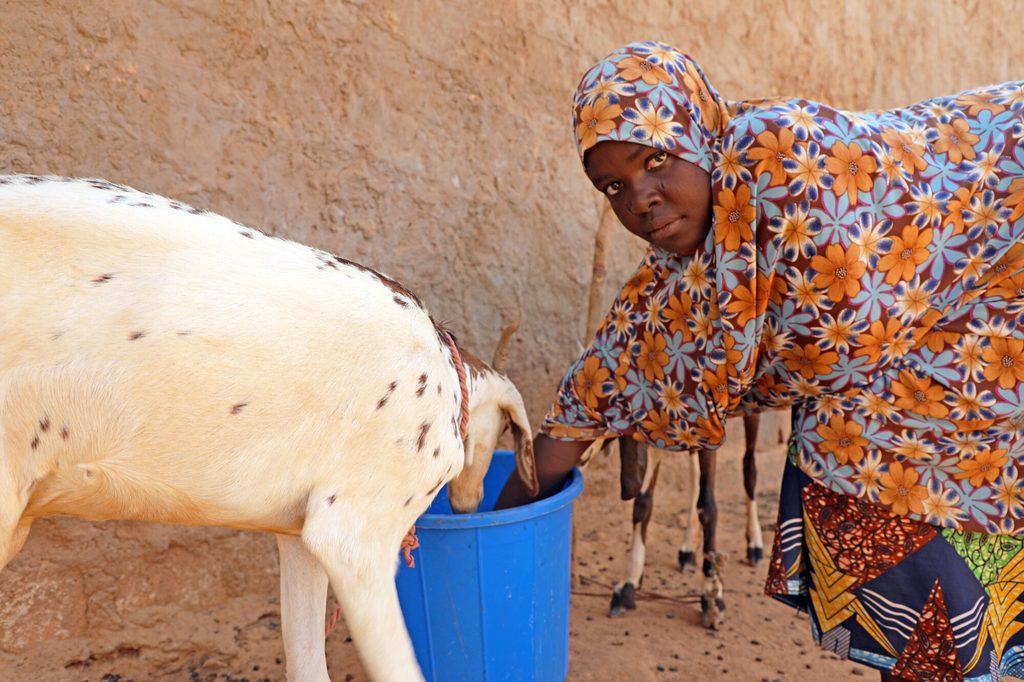
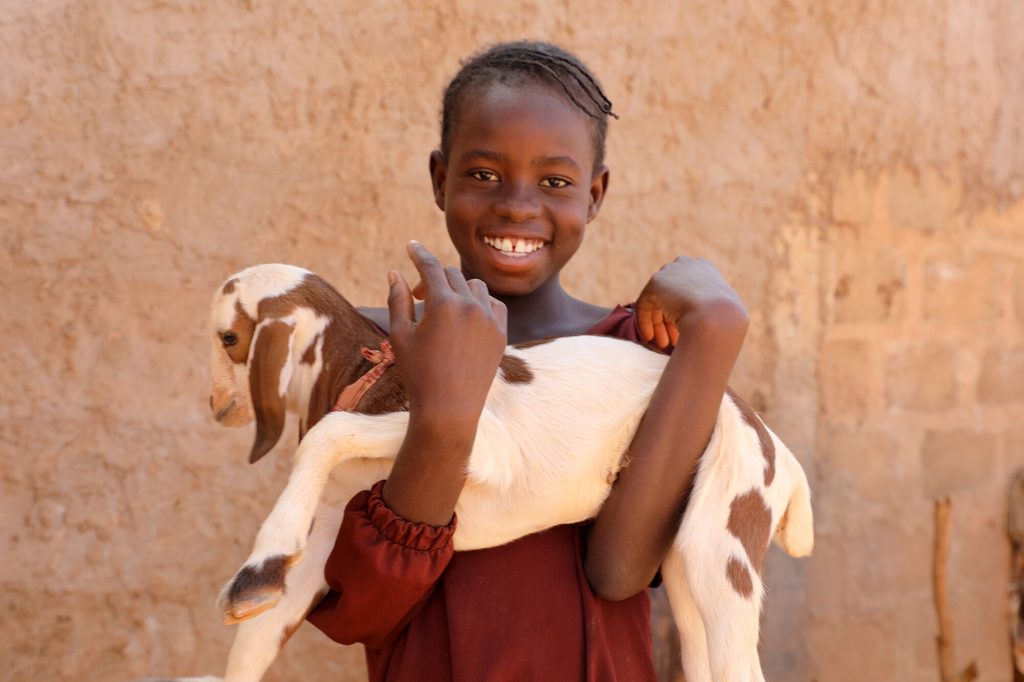
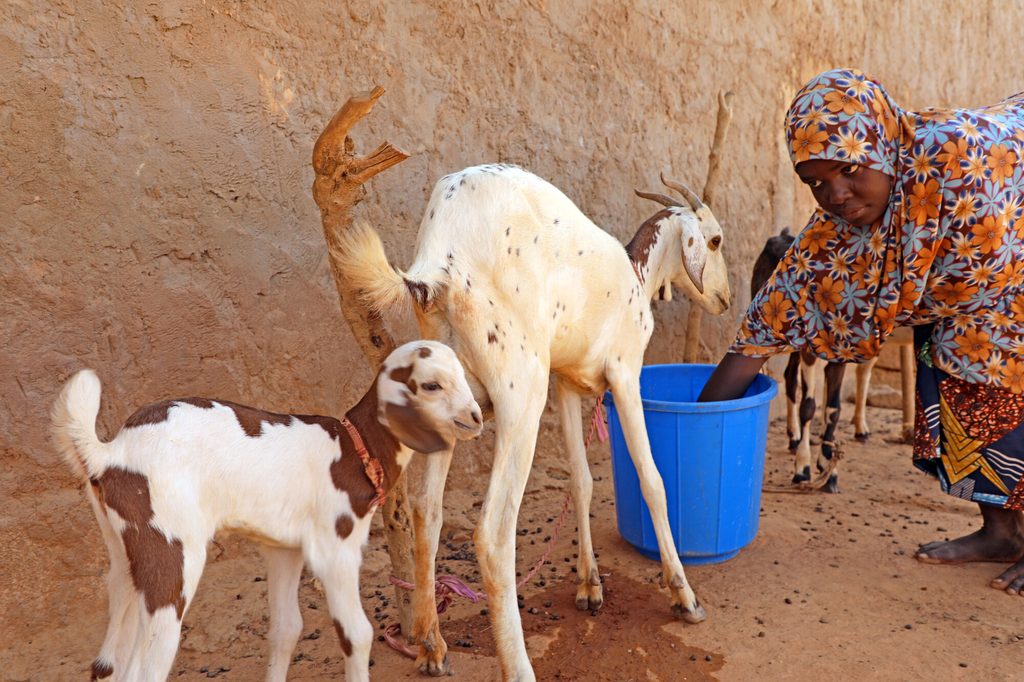
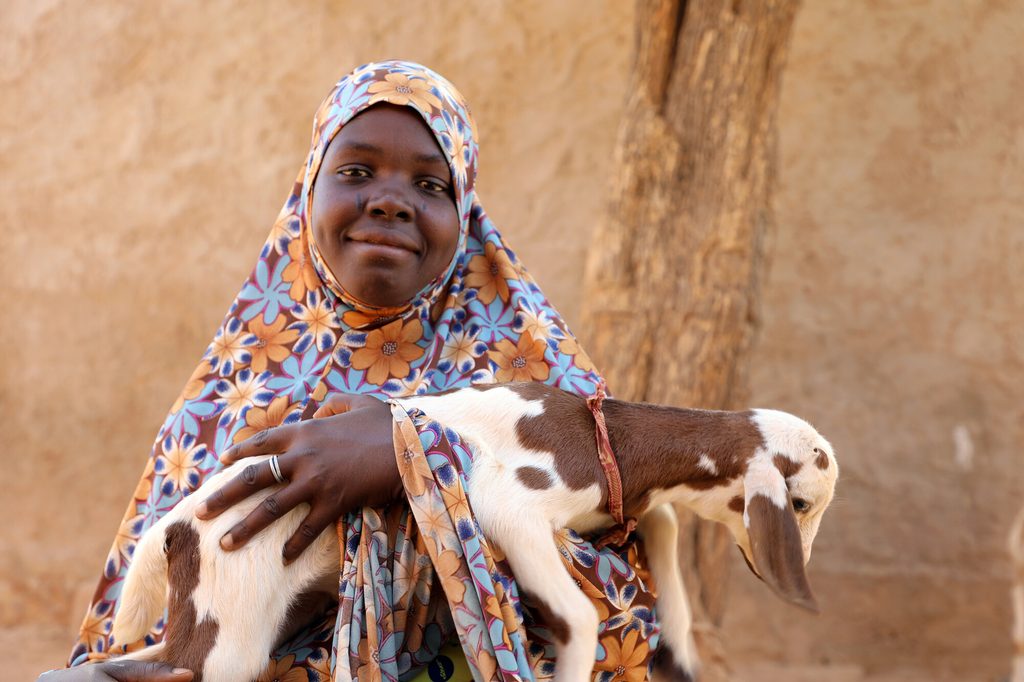
A family on the run for their lives
Four years ago, 30-year-old Aichatou and her family had to flee their home in western Niger after threats from non-state armed groups operating in the area. “They gave us 3 days to leave our village. To save our lives, we left everything behind and found ourselves in a precarious situation,” she recalls.
Since the start of 2021, the conflict in Niger’s western Tillabéri region, which borders Mali and Burkina Faso, has worsened significantly. Attacks on villages are on the rise. During these attacks, gunmen often demand already vulnerable communities abandon their homes. They increasingly target people’s resources and sources of income, looting and destroying crops, stealing livestock, and extorting money.
“I am thankful that our lives have been spared. When there’s life, there’s always hope.”
Mother of 3, Aichatou
Aichatou and her family fled to a neighbouring town, but after 3 years the worsening security situation forced them to move again. This time they settled in a town located much further away, where they have been living for the past year. Life has been very difficult since they lost their sources of income.
“My husband was a gold searcher, he also had animals and a field where we grew millet, corn, okra and cowpeas. We lived very happily. We had enough to eat and my children were enrolled in school. However, things changed with our displacement, we lost everything,” explains Aichatou.
Life as an internally displaced person is not easy for Aichatou and her family and they struggle to survive. “We barely eat twice a day and we do not eat to our satisfaction. We were able to enroll the children in school, but they often go to school with empty stomachs and without school fees. Sometimes, I make sacrifices by not eating to make sure my children have something to eat. Still, I am thankful that our lives have been spared. When there’s life, there’s always hope,” Aichatou says.
Livelihoods key for families’ recovery
Aichatou actively participated in a livelihood project and was among 150 households selected to receive goats and livestock training. “Plan gave us 4 goats, and I also received training on how to care for them. It’s an animal that breeds easily: a single goat can give birth to more than 4 kids a year. Goats are an asset for me. They’re four-legged savings,” she says with a smile.
“I hope that my goats will continue to reproduce, so that I can ensure
Aichatou
a better future for our family.”
The animals not only provide Aichatou with an income, but the milk they produce can be used to supplement her family’s diet. “We now own 4 goats, one of which has given birth and whose milk is used for family consumption. The children love the milk and eat a lot of it for breakfast, along with boiled rice,” Aichatou explains.
Today, she is much more than just a survivor; she is an example of resilience and determination. “I hope that my goats will continue to reproduce, so that I can sell a few and buy some cattle to develop a small business and ensure a better future for our family.”
About our intervention
As Niger continues to face an acute and complex humanitarian crisis marked by the impact of persistent insecurity, epidemics, food insecurity and flooding, 4.3 million people, including 2.4 million children, will be in need of humanitarian assistance in 2024 according to UNICEF.
Plan International is responding to the crisis in Tillabéri and is supporting the needs of vulnerable households affected by the conflict. With financial support from the Regional Humanitarian Fund for West and Central Africa, we have implemented a livelihood project with the aim of strengthening livestock production in the region.

